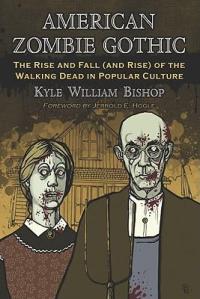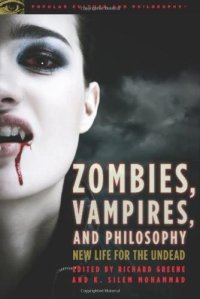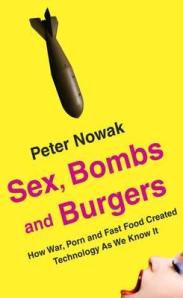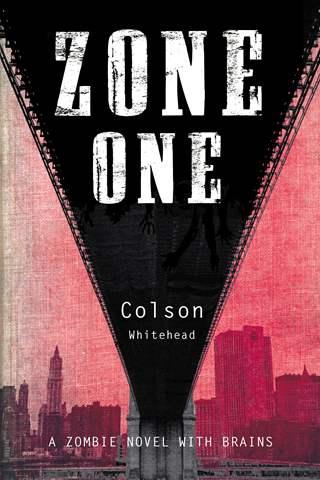Blog Archives
ZomRom is misunderstood
There’s a lot of misunderstanding about zombie romance, particularly with the upcoming movie of the brilliant Warm Bodies. People read the synopsis and think they know all the depths of a zombie romance. But there are elements of classic zombie texts in zombie romance too, and compared to vampires, zombies make way better boyfriends!
Brilliant artist Matt Busch recreated some of the best movie posters into zombie posters with his Hollywood is Dead series. Click on the picture for his website.
~
Vampires are undead too
If anyone mentions necrophilia with zombies only, remind them that vampires are corpses too. Sex is not an essential part of a romance story, and if you really want to think about it, how do vampires get aroused when they have no blood to … stiffen. These zombie romances are young adult books, not erotica (although I’m sure there is some out there!). They are about first kisses and dates to the movies, not horny and sex-obsessed (which most vampires seem to be – True Blood, I kissed a zombie and I liked it.)
~
Zombies – the gentle lover
Vampires are dominating creatures in any text, they usually have super human strength, mind reading or controlling abilities and other powers that put them at a distinct advantage over humans. Vampires take advantage of this in many texts, or even use human-like manipulation and psychological warfare, constantly reminding the humans how useless they are, how small, how insignificant, how defenceless against the vampires.
Zombies in romance texts are much more gentle. They are not forceful, never mash their mouths against a woman against her will. They are seen are weak one on one, only powerful in hordes, and it could be this that makes them softer. They are content with basic touches, of hands, hair, hugs.
~
Humans, best served warm
There’s a few ways that zombie romances get around the whole cannibalism thing. Some zombies just exist as corpses, not requiring any food. Some use medication to control their urges. Some just have self-control. Authors do come up with interesting ways to control their zombies. There are ways of controlling vampires too, but as they are dominating creatures, they usually find ways around the control. In most texts, without food, the vampire will perish or enter a type of coma. Even in zombie-as-enemy texts, zombies don’t need food. They crave to consume, but can last a long time without food.
~
Conciousness is essential
Zombie romance is not the only texts that include zombies with self awareness. Many zombie-as-enemy texts have self-conciousness as well, even in Romero’s work, so it doesn’t go against the lore of the zombie (if there is really any lore, Romero is the definition). Self-awareness is important in their journey. While vampires can choose to become vampires, zombies are always the victim.
Happy Zom-pocalypse!
I had an awesome birthday party with friends and family at the archery range (Australia has a lot of gun laws, and bows are quieter) and then watched the extended (and original) Dawn of the Dead.

Allison and I got a bullseye at the same time!
And of course, I got a lot of zombie related presents! Or book vouchers, which I turned into zombie related presents. So even if reading about my birthday is boring, here’s a list of the books I’ve gotten.

Kyle William Bishop has written a huge amount of intelligent and insightful zombie articles, and this book is one I’ve been dying to get for ages. He is very well referenced in a lot of other articles and theses. This book goes through the entire evolution of the zombie from it’s start in voodoo, and of course, throughout the Romero era. In particular, I’ve been looking forward to a chapter called ‘Humanizing the Living Dead’.

Fred Botting is a staple of any gothic or horror related article or thesis. He wrote the hugely referenced book The Gothic in 1996, but I chose this one as it was published in 2010 and relates to horror and science fiction with looks into cyberspace, posthuman machines and inhuman technology. I might end up getting The Gothic as well, but this one was on sale.

Considering the influences of vampires on zombie lore (e.g. the use of bite = infection/change, and famously, I am Legend was a huge influence on Romero and is often confused for a zombie novel), this looks awesome. Reading academic reviews of it, it isn’t the most in-depth or detailed, particularly for those who are highly read in the subjects already, but considering I’m just starting out my research, it will be useful.

A non-zombie book! *le gasp* I’m hoping that this book will be helpful in establishing cultural and societal anxieties, and how humanity adapted. This will also be related to another thesis idea I have (with science fiction texts) and hope to explore in a masters or doctors thesis. I do absolutely love (and am very amused at) how much the sex industry contributes to technology.

Now for fiction! Dust looks fascinating, as it’s one of the few books which looks at zombies from the zombies point of view (also seen in Warm Bodies, or Life as a White Trash Zombie). This looks at life as a posthuman, and while humans are scared of zombies, what is it that can scare the monster? One of the biggest problems with zombies is that they are really hard to make into sympathetic characters (but it can be done!), so I’m looking forward to seeing how Turner deals with this.

This just looks fantastic to me. Society has devolved back to Victorian customs (love the clothing!) and while there are evil zombies, there are SAS-like squads of good zombies. One thing that drives me nuts about fantasy is that so many reviewers relate every fantasy back to Tolkien (even if they’ve never read Tolkien … ><), and what makes me start foaming at the mouth about zom-rom is that people who don’t know better just say it’s a rip off of Twilight. I’ve already ranted about this before, but in looking at reviews of this book, I saw the same thing again. That’s more a problem with the whole Cult of the Amateur. For me, I can’t wait to read this!
Literary history of the undead
It’s been mentioned in a few articles I’ve read lately, but zombies are special in that they weren’t established in literature before heading to the silver screen. They aren’t European or Gothic monsters. Although undead have been around forever in various myths and stories, academics (e.g Kyle William Bishop) agree that zombies really came into Western thought through Haiti. There are European and Gothic undead, or works which seem to be related to the modern zombie (e.g Frankenstein by Mary Shelley, Edgar Allen Poe’s Fall of the House of Usher or Masque of the Red Death – a personal fave), and you can see reflections of the vampire in modern zombie myth as well (particularly with the influence of I am Legend by Richard Matheson on Romero. Some mistake I am Legend for a zombie story).
~
The earliest texts that mention zombies are actually non-fiction, such as William Seabrook’s The Magic Island. Zora Neale Hurston wrote Tell my horse about her experiences through Haiti and Jamaica and voodoo, including a zombie incident in Haiti. Black Baghdad and Cannibal Cousins by John H Craige tell of Voodoo rituals and cannibalism.
As discussed in the first podcast of Zombies – The Living Dead in Literature (by the University of Alabama), zombies came around the time of the beginnings of cinema, and while there were plays and dramas of these zombies, the cinematic zombies could essentially rip off the earlier versions by claiming they are all based on non-fiction texts, bypassing copyright and ownership law. This is the case with the first movie White Zombie. The producer of the 1929 stage play ‘Zombie’ attempted to sue those in charge of White Zombie for similarities and failed.
~
For fiction, there are quite a few short stories which did include the Haitian voodoo zonbi (there’s a lot of different spellings to indicate the original Haitian zonbi, nzambi, etc to it’s modern myth counterpart, the zombie) include Salt is not for Slaves by G W Hutter (salt will cause the zombi to become concious of their state) , The House in the Magnolias by August Derleth (A woman from Haiti is run out of the country for enslaving zombis, only to go to America and continue her black magic there), Song of the Slaves by Manly Wade Wellman (with an American as the bad guy rather than a Haitian or African). A lot of essays mention H P Lovecraft’s Herbert West – Re-animator series in the 1920’s (Movie version: Jeffrey Combs, for the freaking win!), but this story is more about science than voodoo, and doesn’t use the term zombie. Lovecraft wrote in letters that it was intended as a parody of Frankenstein.
The novels (which are damned hard to find) came a little later, more around the time of the zombie movies, such as The Whistling Ancestors by Richard Goddard (a story of evil racist megalomaniacs), You Can’t Hang the Dead by Leslie Carroll (I can’t find a copy of this at all or enough information to share, except that it’s a zombie story) and A Grave Must Be Deep by Theodore Roscoe (a voodoo mystery!). Voodoo was particularly popular with crime writers at the time.
Which story first uses the word zombie is contested. Most essays agree that it’s William Seabrook’s travelogue (1929), but some other essays say that it’s from ‘The Country of the Comers-Back’ by Lacfcadio Hearn (1889), and yet another essay says that the term actually was first published in French with Le Zombi du Grand Perou, ou la comtesse de Cocagne by Pierre-Corneille Bloessebois.
~
It’s fascinating to read about ‘original’ voodoo zombies, compared to the modern. The old are a mix of racism and post-colonial literature, most having been published after the Haitian Revolution and the burst of literature of zombies and voodoo is through the years of the US occupation of Haiti. Zombies, either possessed corpses or the living who were poisoned with a concoction to mimic death and then enslaved, are products of sorcery and magic. I can only think of a few modern examples of this use of magic (beware Native American burial grounds!).
~
Recommended Reading:
White Zombie by Kieran M Murphy in Contemporary French and Francophone Studies, VOl 15, no 1
The Zombie Media Monster and its Evolution as a Sign and Historical Allegory by Ryan Lizardi, Masters Thesis
The Story of Zombi in Haiti by Louis P Mars in Man, vol 45
The Modern Zombie: Living Death in the Technological Age by Sarah Juliet Lauro, PHD thesis
Zombies Before Romero by Tony Chestor, article for the UK World Horror Convention in 2010 (found here)
Zone One
This is a book I won a month ago, with a competition by indie bookstore in Sydney, Pages and Pages.
It fascinates me as the author went from high end literary fiction (of which, his work is award winning!) to zombies. Everyone talks zombie fiction down. They’re just misunderstood!
While doing my usual Googling of the internet for zombie related things, I found a discussion between Colson Whitehead and Alex Pappademas about the zombie allure and history of the zombie. It’s an awesome read, particularly heart-warming when Colson goes into his love for Romero films. Romero is our zombie god.
As for the book, go buy it at Pages and Pages!

